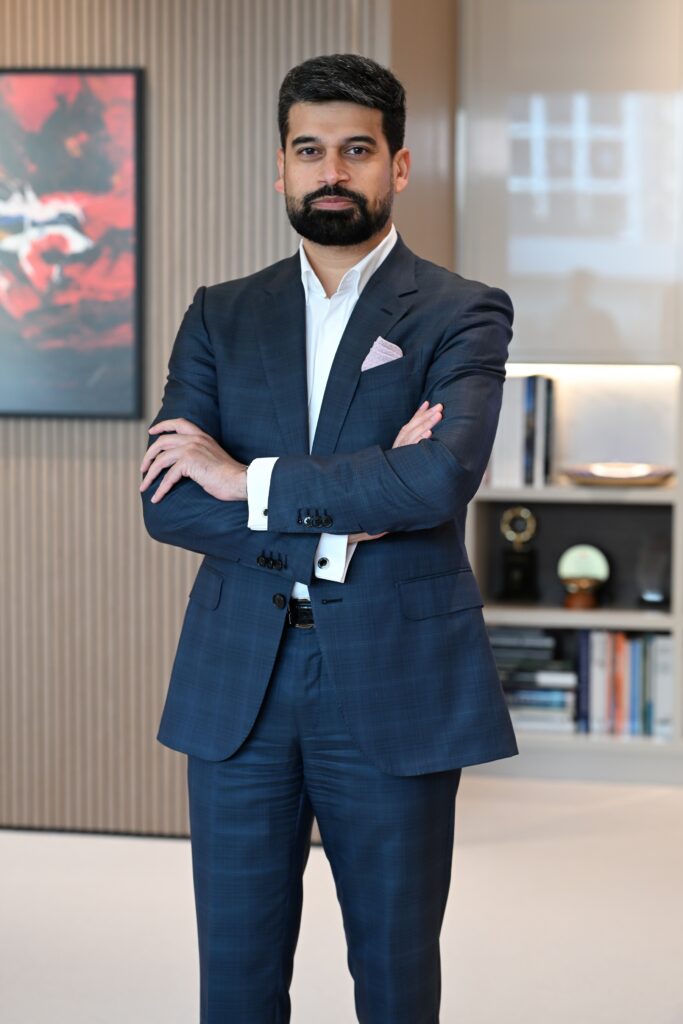Financial
Sobha Realty Green Sukuk marks $750m milestone

Sobha Realty has achieved a major financing breakthrough with its inaugural Sobha Realty Green Sukuk, valued at USD 750 million. This record-setting deal stands as the company’s largest issuance and the biggest Green Sukuk by a real estate developer worldwide. The Sukuk, launched under a USD 1.5 billion Trust Certificate Issuance Programme, will trade on both the London Stock Exchange and Nasdaq Dubai.
Sobha Realty Green Sukuk oversubscribed 2.8x
Investor demand proved exceptional. The five-year Sukuk, set to mature in 2030, attracted USD 2.1 billion in orders—2.8 times its issue size. As a result, pricing tightened by 50 basis points from initial guidance. Moreover, Sobha Realty fixed the Sukuk at a profit rate of 7.125% with an effective yield of 7.375%. Importantly, allocations reflected a balance: 56% from regional investors and 44% from international buyers.
Financing green projects through the Sukuk
The proceeds will finance or refinance sustainable projects outlined in Sobha Realty’s Green Financing Framework. Furthermore, the framework aligns with ICMA’s Green Bond Principles and LMA’s Green Loan Principles. In addition, DNV issued a Second Party Opinion confirming this alignment. Consequently, the Sobha Realty Green Sukuk directly connects capital markets with climate-focused development, ensuring measurable environmental benefits.
Chairman’s view on growth and responsibility

Ravi Menon, Chairman of Sobha Group, expressed confidence in the company’s strategy.
“The success of our Green Sukuk demonstrates investor belief in our financial strength and ESG vision. This issuance aligns our financing with our sustainability agenda. It also accelerates our green initiatives, positions us as a leader in sustainable luxury real estate, and supports the UAE’s Net Zero by 2050 Strategic Initiative.”
His words underline how the Sukuk combines financial discipline with long-term responsibility.
Ratings and banking partners
Moody’s expects to rate the Sukuk at Ba2 (Stable) and S&P at BB (Stable), matching Sobha Realty’s corporate profile. Additionally, leading banks supported the transaction. Dubai Islamic Bank, Emirates NBD Capital, J.P. Morgan, Mashreq, and Standard Chartered acted as Joint Global Coordinators. Several other institutions joined as Joint Lead Managers and Bookrunners. Moreover, Deutsche Bank and Emirates NBD Capital served as Joint ESG Structuring Coordinators, embedding sustainability into every stage.
A milestone in Sobha Realty’s financing journey
This issuance strengthens Sobha Realty’s balance sheet and sets a benchmark for sustainable real estate financing. By pairing luxury projects with green funding, the company proves that ESG and profitability can align. Communities like Sobha Hartland and Sobha Siniya Island will benefit as proceeds flow into projects built for long-term environmental and social value.
Ultimately, the Sobha Realty Green Sukuk represents more than a financing success. It reflects investor trust, confirms global credibility, and reinforces the company’s role in shaping sustainable communities aligned with the UAE’s national vision.
Check out this previous post on Lebanon fintech investment: Whish Money Q&A
Financial
Abu Dhabi-Based Asif Aziz Will Illuminate London’s West End with Ramadan Lights for Fourth Year, Expanding Global Cultural Impact


Abu Dhabi–based businessman and philanthropist Asif Aziz, Founder of Criterion Capital, continues to set the benchmark for large-scale public programming as his landmark Ramadan Lights London initiative returns for a spectacular fourth edition.
Having launched Western Europe’s first-ever aerial Ramadan lights in 2023, Aziz has permanently reshaped the cultural landscape of London. What began as a groundbreaking concept has since evolved into a globally-recognised, free, annual celebration delivered for civic good, placing the values of Ramadan at the heart of one of the world’s most influential cities.
Delivered through Aziz’s charity, The Aziz Foundation (Registered Charity: 1169558), Ramadan Lights London demonstrates values-led leadership at scale, showing how faith, culture and community can intersect to create lasting social impact.

At the heart of the programme is the flagship aerial lights display along Coventry Street: a pioneering installation of more than 30,000 sustainable LED lights arranged in intricate geometric patterns inspired by Islamic art, with motifs representing suhoor and iftar.
The 2026 programme will open with a high-profile switch-on ceremony, with the lights activated by Sir Sadiq Khan, Mayor of London, Rahima Aziz BEM, Trustee at The Aziz Foundation, and Adil Ray OBE, actor and broadcaster, in the presence of senior public leaders, distinguished cultural figures, ambassadors and international dignitaries. The display will remain illuminated until 18th March 2026, before transitioning to Eid Lights through to 24th March 2026.

A selection of artworks featured in Shared Light – central London’s first interfaith art exhibition. Left: Rooh-e-Bhag (Soul of the Garden) (2025) by Mohamad Aaqib Anvarmia. Centre: Hospitality of Abraham – After Rublev (2025) by Meg Wroe. Right: Mettavihari (2025) by Colin Panrucker
This year will also see the launch of Shared Light – central London’s first interfaith Ramadan art exhibition – bringing together artists of all faiths and backgrounds whose work is inspired by the values of Ramadan. The exhibition will be unveiled by the Deputy Lord Mayor of Westminster and hosted at Aziz’s Zedwell hotel at Piccadilly Circus, reinforcing culture’s role as a bridge between communities in one of the world’s most iconic city centres.

Ramadan Lights London will also welcome back Ramadan Delights, London’s first curated iftar food trail, introduced by Aziz in 2025 and now firmly established as a district-wide West End experience. The trail brings together leading international brands and heritage institutions – including Fortnum & Mason, 1 Leicester Square Rooftop, PizzaExpress and Shake Shack- offering special menus, exclusive offers and halal-friendly dining while supporting local businesses and the economic vitality of the area.
This year, the initiative is further strengthened through a partnership with Centrepoint, the UK’s leading youth homelessness charity, reflecting a shared commitment to social mobility, economic empowerment and supporting disadvantaged young people.
Commenting on the programme, Asif Aziz said: “Ramadan Lights London reflects how the values of Ramadan – generosity, reflection and empathy – can contribute meaningfully to civic life. It is about thoughtful engagement and creating shared experiences that strengthen communities and endure over time.”
Beyond Ramadan Lights London, Aziz’s wider philanthropic work continues to deliver impact. Since 2015, The Aziz Foundation has awarded over 750 scholarships, supported more than 100 media internships, and delivered extensive mentorship programmes across key industries. Aziz is also leading the regeneration of Criterion Capital’s Grade II-listed London Trocadero, transforming the landmark into a 1,000-capacity mosque and community centre – a long-term investment in cultural and faith infrastructure in a major global city.
Alongside his charitable endeavours, Aziz is establishing a scalable, world-class co-investment platform in Abu Dhabi, working with UAE institutions to deploy capital into transformative urban and living-sector opportunities across Europe and the Middle East, with a continued focus on sustainable social outcomes.
Financial
ENOVATE AND COBI LAUNCH LARGE-SCALE AI-POWERED DIGITAL PAYMENT INFRASTRUCTURE

eNovate, a subsidiary of eFinance Investment Group, and Cobi, a UAE-headquartered AI-native customer intelligence platform, today announced the integration of Cobi’s AI-powered intelligence infrastructure across its digital payment ecosystem to redefine how young people across Egypt engage with digital financial services. Enabled through Mastercard’s Engage programme, the partnership combines eNovate’s digital payments product suite and Cobi’s AI-powered engagement platform to give financial institutions a new level of intelligence, personalisation, and behavioural insight across their customer base. As the MENA region emerged as a global hub for financial services innovation in 2025, fuelled by government initiatives and rapid digital payments growth, the focus is shifting toward AI-powered engagement and intelligence at scale.
The collaboration begins with the Rize app, eNovate’s flagship digital wallet, where Cobi’s intelligence layer will power real-time personalisation for Egypt’s youth segment. With 85% of people across MENA already using at least one emerging payment method, this allows banks and fintechs to better understand spending behaviours, identify friction, and deliver timely product interventions that drive activation, loyalty, and long-term customer value. The capability will extend across eNovate’s broader digital payment services, forming Egypt’s first large-scale AI-driven portfolio management infrastructure.
With the MENA region’s AI in financial services market projected to reach $4.7 billion by 2032, underscoring the scale of opportunity for intelligent, data-driven payment infrastructure across the region. At the core of the partnership is Cobi’s behavioural AI engine, which builds deep context on how users engage, identifies patterns, and recommends or triggers next-best-actions across acquisition, activation, and retention journeys for customers combining it with eNovate’s role as a central payments and digital services provider to Egypt’s banks, telcos, fintechs, merchants, and government-linked entities, the collaboration marks a major step toward intelligent, personalised financial experiences across the country.
Nashwa Kamel, CEO of eNovate, explained: “eNovate is committed to enabling banks & financial institutions with modern, data-driven capabilities. Partnering with Cobi allows us to introduce real-time intelligence into every digital wallet and payment experience we support, starting with the youth-focused Rize app. This collaboration strengthens our mission to provide Egypt with the most advanced and responsive payment infrastructure that provides insights into spend behaviour, helping banks & financial institutions to spot inefficiencies, optimize costs, and make smarter, data-driven decisions. By turning raw spend data into strategic intelligence, businesses can anticipate trends, strengthen supplier relationships, and accelerate sustainable growth.
Darren Edmund, CEO of Cobi, highlighted: “Our partnership with eNovate represents a fundamental shift in how digital payment infrastructure operates. By embedding Cobi as the intelligence layer across eNovate’s ecosystem, we are enabling banks and financial platforms to move beyond static transaction processing toward real-time, adaptive systems that understand and respond to user behaviour instantly. This allows institutions to personalise at scale, optimise portfolio performance, and build deeper, longer-lasting customer relationships. We’re glad to have had Mastercard’s Engage programme support this collaboration.”
Looking ahead, the partnership will extend toward agentic payment experiences, where AI not only analyses user behaviour but autonomously recommends or initiates actions that improve financial outcomes, ushering in a new era of intelligent and proactive financial services across Egypt. The initial deployment begins in Q1 2026, with expansion planned across additional eNovate-powered platforms and regional markets.
Financial
UAE ATTRACTS $40BN IN FDI AMID GLOBAL UNCERTAINTY, NEW REPORT SUPPORTED BY QASHIO REVEALS

As geopolitical tensions, de-globalisation, and economic uncertainty reshape global capital flows, the United Arab Emirates (UAE) is consolidating its position as one of the world’s most trusted and resilient financial gateways, according to a new report by Emerging Markets Intelligence & Research (EMIR), supported by Qashio.
The report, ‘Mapping the UAE’s Role as a Global Financial Gateway’, highlights how the UAE is attracting high levels of foreign direct investment and financial activity at a time when capital is retreating from many traditional markets.
Foreign direct investment into the UAE doubled to $40 billion (between 2019 and 2024), reaching record levels even as global FDI stagnated. In 2024, FDI accounted for 40% of the UAE’s gross capital formation, compared to just 4.3% across developed economies, underscoring the country’s growing role as a destination for long-term, trust-led capital.
The scale of activity is accelerating rapidly. The UAE recorded 1,362 FDI projects in 2024, representing a 350% increase since 2020, while assets under management in the Dubai International Financial Centre (DIFC) reached $700 billion, growing 58% year-on-year.
According to the report, the UAE’s ability to benefit from global realignment is closely linked to its neutrality, regulatory clarity, and institutional agility.
“The UAE is actually benefiting from the de-globalisation and the geopolitical reorientation of major power blocks. It doesn’t have adversaries, so is able to build economic ties with everyone. The speed with which the government has been able to adapt to and anticipate the new situation is remarkable,” the report notes.
Beyond capital inflows, the research also points to the UAE’s expanding role as a transaction and payments hub, supported by modern financial infrastructure, strong compliance frameworks, and growing confidence among global businesses managing cross-border activity from the region.
From Qashio’s perspective, the UAE’s rise as a financial gateway reinforces the importance of secure, transparent, and compliant financial operations for businesses operating in an increasingly complex global environment.
“As capital flows become more fragmented and regulated, trust and control are no longer optional — they are foundational,” said Armin Moradi, Founder and CEO of Qashio. “Businesses operating from the UAE need full visibility over spending, strong compliance with Central Bank guidance, and the ability to act on financial insights in real time. This report reflects why the UAE has earned global confidence — and how organisations can operate responsibly within that ecosystem.”
The findings position the UAE not only as a safe destination for capital, but as a jurisdiction capable of supporting long-term growth across finance, trade, technology, and digital assets — at a time when global businesses are reassessing where and how they deploy resources.
To learn more about how the UAE is consolidating its role as a trusted global financial gateway and what this means for businesses navigating today’s fragmented capital landscape download the full report here.
-

 Tech News2 years ago
Tech News2 years agoDenodo Bolsters Executive Team by Hiring Christophe Culine as its Chief Revenue Officer
-

 VAR10 months ago
VAR10 months agoMicrosoft Launches New Surface Copilot+ PCs for Business
-
News10 years ago
SENDQUICK (TALARIAX) INTRODUCES SQOOPE – THE BREAKTHROUGH IN MOBILE MESSAGING
-

 Tech Interviews2 years ago
Tech Interviews2 years agoNavigating the Cybersecurity Landscape in Hybrid Work Environments
-

 Tech News7 months ago
Tech News7 months agoNothing Launches flagship Nothing Phone (3) and Headphone (1) in theme with the Iconic Museum of the Future in Dubai
-

 VAR1 year ago
VAR1 year agoSamsung Galaxy Z Fold6 vs Google Pixel 9 Pro Fold: Clash Of The Folding Phenoms
-

 Tech News2 years ago
Tech News2 years agoBrighton College Abu Dhabi and Brighton College Al Ain Donate 954 IT Devices in Support of ‘Donate Your Own Device’ Campaign
-

 Automotive1 year ago
Automotive1 year agoAGMC Launches the RIDDARA RD6 High Performance Fully Electric 4×4 Pickup



















